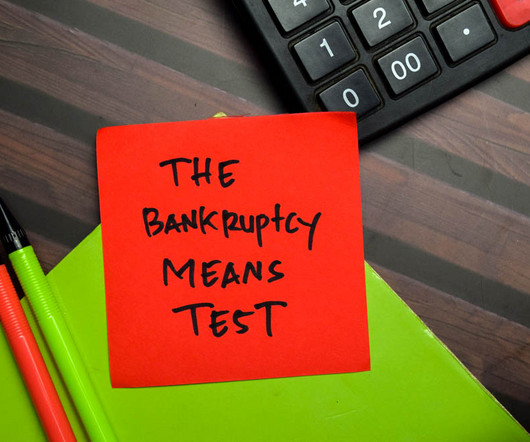What is the Bankruptcy Means Test?
Sawin & Shea
MAY 24, 2023
Chapter 7 bankruptcy (the most common form of bankruptcy ) essentially wipes away a large portion of your unsecured debts and protects certain assets you may possess. Briefly, unsecured debts are not backed by any collateral. Credit card and medical debt are examples of unsecured debt.











Let's personalize your content